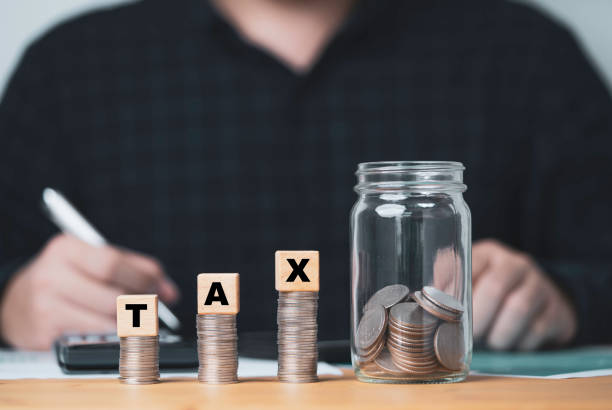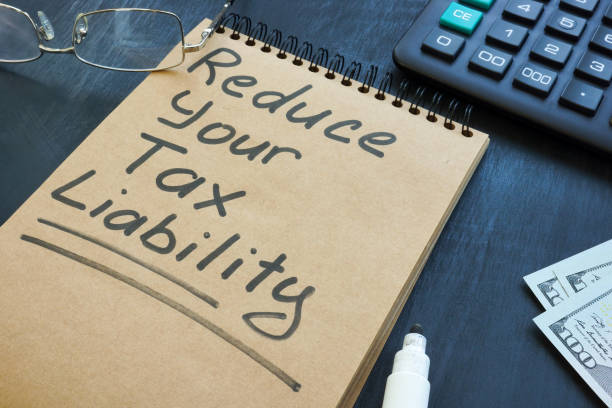Credit Tip Tuesday #118-What Are The Impacts Of Your Credit Score On Your Tax Returns

Image Credits: iStock
Hello there! Have you ever wondered how your credit score can affect your tax returns?
Many people do not realize that their credit score can have a significant impact on their financial life, including their taxes.
A good credit score can open doors to lower interest rates on loans and credit cards, while a poor score can make it harder to obtain credit and may result in higher interest rates.
In this article, we will explore the various impacts that your credit score can have on your tax returns and how you can potentially improve your score to save money on taxes.
How Does Your Credit Score Impact Your Tax Returns?

Image Credits: iStock
Your credit score is not directly reported on your tax return, but it can impact your overall personal finance situation in a few different ways, which in turn can affect your tax liability.
Let's explore each one in more detail.
1. Tax Deductions And Credits
Your credit score can have a significant impact on your tax returns, as it can affect your eligibility for certain tax deductions and credits.
For example, your credit score can impact your eligibility for certain tax credits, such as
These credits can provide a significant reduction in your tax liability, but they are only available to taxpayers who meet certain income and credit score requirements.
On the other hand, having a good credit score can help you qualify for certain tax deductions, such as the student loan interest deduction or the mortgage interest deduction. For instance, the mortgage interest deduction allows you to deduct the interest you paid on your mortgage from your taxable income, which can help lower your tax bill.
Read: A Complete Guide To Build & Boost Your Credit To Get Good Mortgage Rates
Additionally, having a good credit score may also help you avoid penalties and interest charges for late tax payments.
2. Audit Risk

Image Credits: Freepik
Another way your credit score can impact your tax returns is through the risk of being audited by the Canada Revenue Agency (CRA). The CRA uses various criteria to select tax returns for audit, such as tax scams, credit score, etc.
A low credit score can be seen as a red flag by the CRA, as it may suggest that you have a history of not paying debts on time. This could lead to increased scrutiny of your tax return, which could result in an audit.
In contrast, having a high credit score may decrease your chances of being audited, as it indicates that you have a history of being responsible with credit.
3. Refund Delays
Refund delays are a common issue that can impact your tax returns, regardless of your credit score. The IRS may delay your tax refund for a variety of reasons, including
- Errors or inconsistencies on your tax return
- Suspected identity theft
- Backlog of processing due to high volume
However, if you have a low credit score, it may suggest to the CRA that you have a history of not paying debts on time, which could result in a delay in receiving your tax refund.
For example, if you owe back taxes or have unpaid student loans, the IRS may apply your refund to those debts, which can delay the processing of your refund.
Although having a good credit score does not necessarily guarantee a faster refund, it can help you avoid common financial mistakes that can cause delays.
4. Tax Debt Collection

Image Credits: Freepik
Your credit score can also impact how the CRA collects tax debts from you. If you owe taxes and are unable to pay, the CRA may use various methods to collect the debt, including garnishing your wages or seizing your assets.
A low credit score could indicate to the CRA that you are a high-risk debtor, which could result in more aggressive debt collection methods being used against you.
To avoid these consequences, paying your taxes on time and in full is important. If you are unable to pay your taxes, it is essential to contact the CRA and discuss payment arrangements.
However, having a low credit score can make it harder to negotiate with the IRS for a repayment plan or settlement. Additionally, having tax debt can negatively impact your credit score, as it can be reported to credit bureaus and remain on your credit report for up to seven years.
In short, it is a two-way street, meaning that having a low credit score can lead to severe debt collection efforts on the part of the CRA, and having tax debt can have a bad impact on your credit score.
5. Installment Payments

Image Credits: iStock
Installment payments can be a useful option for taxpayers who are unable to pay their taxes in full by the deadline. The IRS offers several payment plans, including installment agreements, that allow taxpayers to pay their tax debt over time.
However, your credit score can impact the terms of the installment agreement. If you have a low credit score, the CRA may require you to provide additional security or guarantee before approving the installment agreement. This could include a
- Lien On Your Assets
- Co-Signer On The Agreement
A good credit score, on the other hand, could help you negotiate more favorable terms for the installment agreement.
How Can You Improve Your Credit Score For Tax Purposes?
Now that you understand how your credit score can impact your tax returns, you may be wondering what you can do to improve your credit score. Here are a few tips:
1. Pay Your Bills On Time
One of the most important factors in calculating your credit score is your payment history. Make sure you pay your bills on time, every time, to avoid late payments and negative marks on your credit report.
2. Keep Your Credit Utilization Low
Another factor that impacts your credit score is your credit utilization or the amount of credit you are using compared to your credit limit. Aim to keep your credit utilization below 30% to demonstrate that you are using credit responsibly.
3. Do Not Apply For Too Much Credit
Every time you apply for credit, the lender will check your credit score, which can slightly lower your score. Try to limit the number of credit applications you make and only apply for credit when you need it.
4. Monitor Your Credit Report

Image Credits: iStock
Regularly checking your credit report can help you identify errors or fraudulent activity that could be impacting your credit score. You are entitled to one free credit report per year from both Equifax and TransUnion, so take advantage of this opportunity.
5. Consider A Credit Monitoring Service
A credit monitoring service can help you keep track of your credit score and credit history and alert you to any changes or suspicious activity.
6. Use Credit Responsibly
Using credit responsibly can help improve your credit score over time. This means only borrowing what you can afford to pay back and paying back your debts on time.
7. Seek Professional Help
If you are struggling with debt or have a low credit score, do not be afraid to seek professional help. There are credit counseling services and debt management programs available in Canada that can help you get back on track.
Summary
Your credit score plays a crucial role in many aspects of your financial life, including your tax returns. Therefore, knowing how your credit score can affect your taxes can help you make informed decisions and potentially save you money.
Remember, improving your credit score is a long-term process, but the benefits of a good credit score are worth it. With a better credit score, you can enjoy lower interest rates, better loan terms, and potentially more significant tax benefits.
So, if you have not already, make sure to check your credit score regularly and take action to improve it if necessary.
Your wallet (and your tax returns) will thank you!


